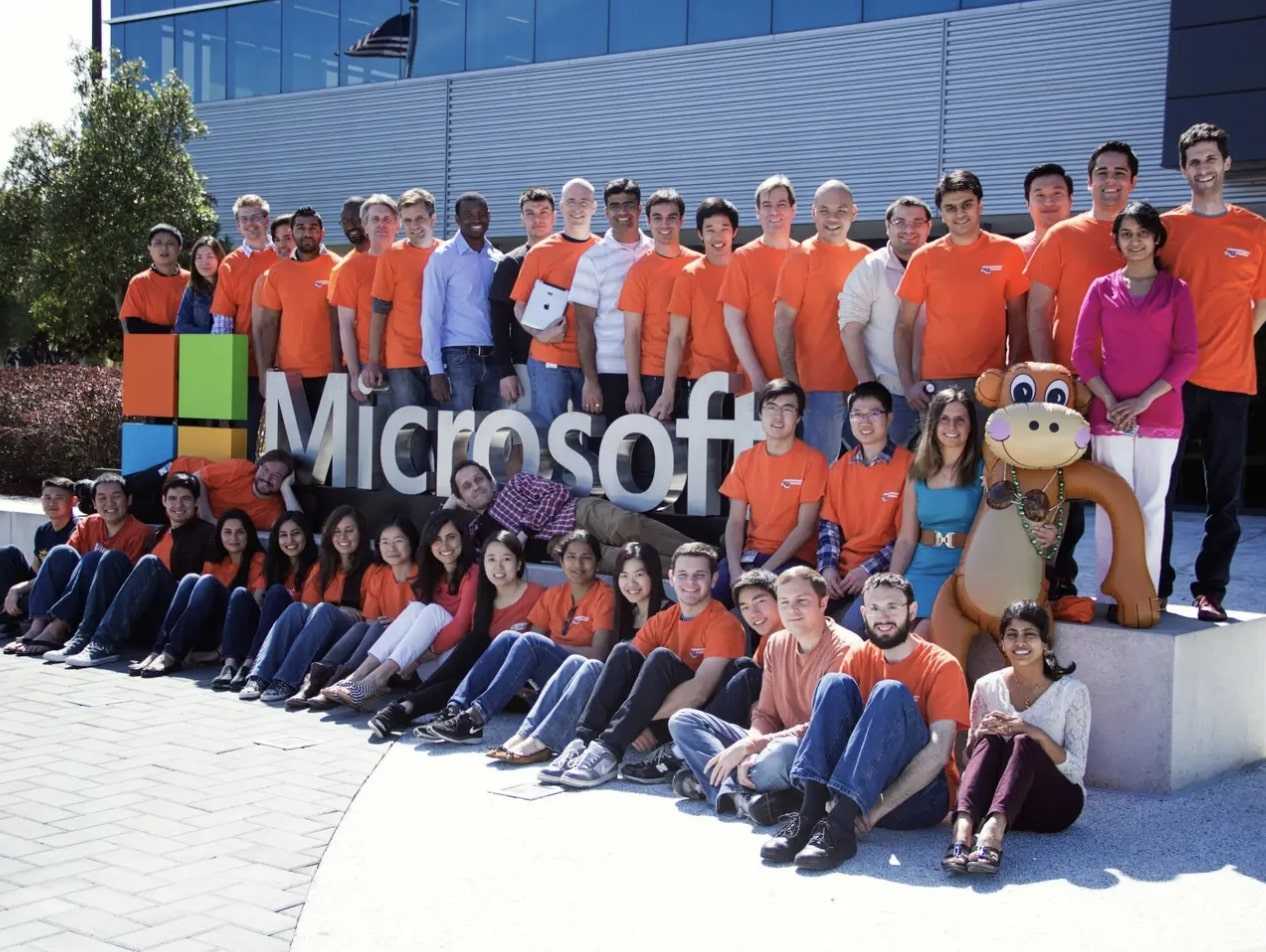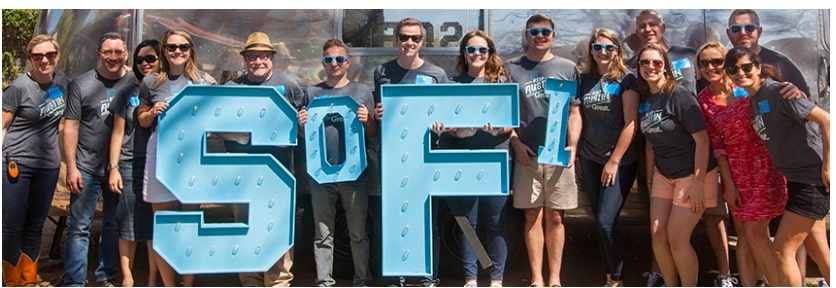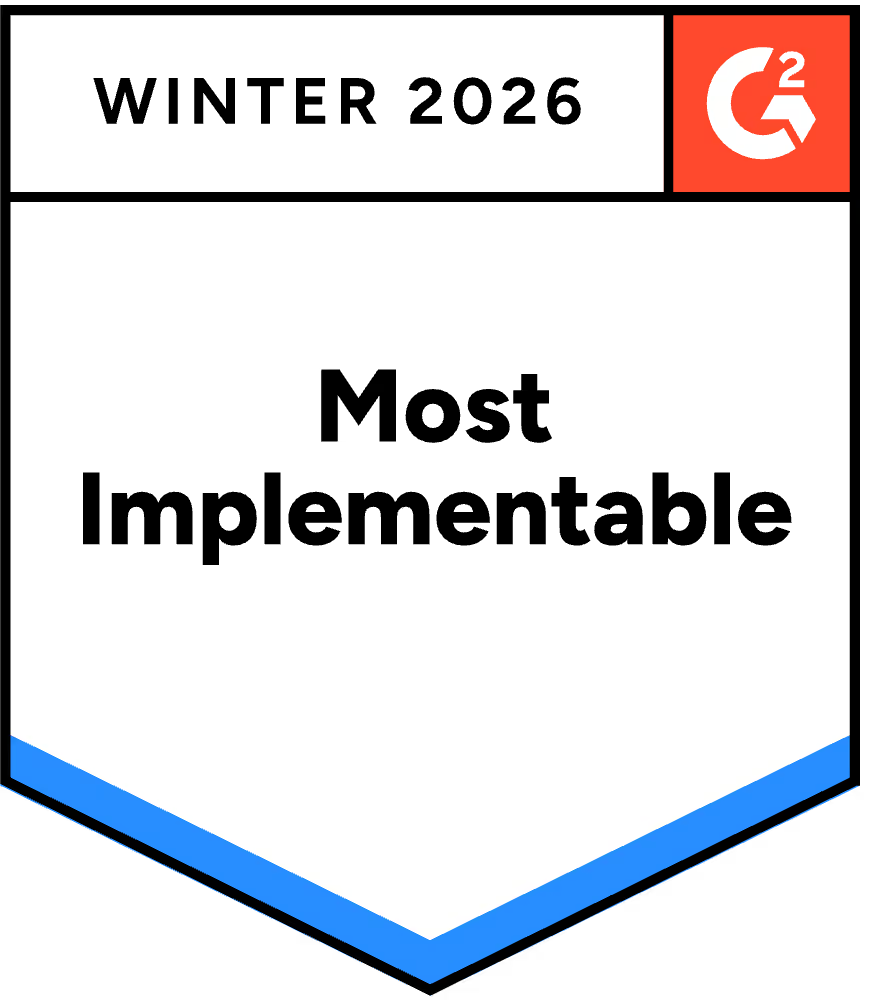8 company culture examples to inspire leaders & teams

The gap between companies that thrive in uncertain times and those that don’t often comes down to culture. That’s not to say there’s a specific culture that can make you more resilient in the face of challenges. Rather, success is linked to how clearly a company defines its mission and purpose, as well as how closely everyone — especially leadership — aligns with it.
That’s one thing that most influential enterprises and noteworthy brands share. They gather internal input to determine what makes them distinctive and exceptional rather than looking externally. Then, they translate their company identity into a specific set of ideals and practices that team members feel aligned with. While that may sound like an obvious strategy, it doesn’t seem widely practiced: Only 22% of employees feel connected to their company culture, and only 28% think that their leaders are committed to their cultural values.* That means that most organizations haven’t yet created a strong, engaging culture that’s distinguishable from others.
Whether you’re creating or redefining your business’s ethos and identity, looking to examples for inspiration — not imitation — can help. That’s why we’ve compiled this list of eight companies that have tapped into empathy and leveraged employee feedback to create working environments that truly fulfill their people’s unique needs.
*Gallup, 2023
What is company culture?
Company culture refers to the mission, values, goals, attitudes, and approaches to problems that make an organization unique. A business’s culture can have written components like a core values statement or a culture handbook that details the policies and procedures that make it a motivating, equitable, inclusive work environment. Still, many aspects of culture are unwritten, such as the internal methodologies team members follow for goal setting or how leadership communicates issues and company updates.
Organizations that seek to make their culture a positive, impactful force for success tend to prioritize internal values like:
- Transparency and trustworthiness
- Respect
- Fairness and equity
- Belonging
- Innovation
- Growth and development
Why prioritizing a positive yet distinctive culture is crucial
A healthy workplace culture matters to employees because it allows them to feel valued, facilitates growth, and helps them nurture meaningful professional relationships. When a high percentage of team members report that they don’t feel a sense of belonging or appreciation in engagement surveys, manager reviews, or anonymous feedback, your culture might be out of balance.
At the same time, it’s important that your culture is unique. As useful as it can be to replicate cultural formulas that work for other organizations, emulating competitors and peers too closely means that you’re not effectively leveraging your own competitive advantage. Your culture exists to support your employees’ particular needs and goals, so you need to develop it from within rather than rely on external sources.
As Kreischer Miller’s Director-in-Charge of Talent Advisory Bobbi D. Kelly writes in her article for the Philadelphia Business Journal: “When business leaders think about culture, they often focus on whether it’s ‘good’ or ‘bad,’ not ‘right’ or ‘wrong.’ If you have the wrong culture to achieve the business results you’re pursuing, your culture will feel ‘bad.’ It’s not a one-size-fits-all solution.”
Building a positive culture that stands out from others should matter to organizations because it leads to:
- Increased retention — McKinsey research found that a lack of appreciation and recognition is among the top reasons people leave their jobs. Striving to empower employees with a greater sense of belonging is key to keeping turnover low and holding on to your best talent.
- Higher engagement — When team members feel connected with the organizational culture and invested in the overarching mission, they’re 3.7 times more likely to say they’re engaged and 5.2 times more likely to describe the company as a great place to work.
- Enhanced productivity and performance — When employee needs and company values harmoniously align, your organization could experience a 23% increase in profitability and a 14% increase in productivity, according to Gallup.
⚙️ The right culture tools make keeping everyone aligned simple
Our company culture software breakdown includes platforms to suit diverse organizational needs, goals, and sizes.
👉 Learn more
8 top examples of thriving company cultures
A healthy work culture can help you stay resilient and keep expanding even in the most challenging economic landscapes. The following eight examples illustrate how many different approaches you can take to building and reinforcing a positive work environment, even if your strategy changes over time.
1. Leapsome

Our mission as a company is to make work fulfilling and enjoyable for everyone with our people enablement and engagement platform. Internally, we also aim to practice that daily. While we strive for excellence and progress, we don’t believe that those ideals should come at the cost of a healthy work-life balance or professional relationships. To that end, we’ve built strong processes for sharing constructive feedback, appreciation, and encouragement.
When it comes to expanding our company, we’ve managed to grow our numbers quickly despite a challenging labor market. That’s because we prioritize building a diverse, international organization where people — and not just the business — thrive. We’re proud of our 4.5 out of 5 rating on Glassdoor and the fact that 94% of employees would recommend working at Leapsome to a friend.
What Leapsome did to level up their company culture

At Leapsome, we’re constantly coming back to our values — including in the values dialogue workshop at this year’s team offsite event
At Leapsome, we’ve created a culture that sets employees up for success by:
- Getting everyone’s input to define our values — We created a survey to get every team member’s thoughts about what makes Leapsome unique, which allowed us to distill our unique ethos into a set of uniting ideals. We then refined that feedback in workshops and brainstorming sessions to decide how each of our values should be phrased.
- Introducing an individual development budget — We offer every team member an annual budget of €2,000 to support their personal career growth.
- Offering fair and equal pay — To create the right environment for all employees to be successful and engaged in the long run, we’re committed to offering fixed compensation packages for each level that are consistent with the 75th percentile of the market median. This helps us prevent any systemic pay differences, while regular salary benchmarking ensures fairness and consistency.
- Flexible schedules and remote work — We think that everyone needs to honor their individual work rhythms, so we allow employees to adjust their schedules according to their needs and roles. We also support team members who prefer remote work arrangements for better work-life balance.
- Events and offsite — Leapsome has a dedicated events committee that organizes regular get-togethers, from summer boat cruises to winter holiday parties. Each department also enjoys quarterly events to encourage team bonding and facilitate collaboration. On top of that, we hold a yearly offsite for the whole company that focuses on team-building and creative brainstorming. Among other benefits, these social gatherings help us combat working in silos and allow employees to get to know each other better.
💪 Leverage what makes your company distinct — the people
Leapsome’s Surveys module can help you identify and understand where your organizational culture needs to grow.
👉 Book a demo
2. Google

Twenty-five years ago, two Stanford University computer science students, Larry Page and Sergey Brin, developed a search engine that would eventually change how we use the internet. Since then, the tech giant has experienced a few different cultural iterations with changing leadership and strategic updates, many of which have also influenced how other companies approach their own cultures.
For example, thanks to Google, more organizations started implementing open-concept office spaces and offering unique on-site perks like bowling alleys and basketball courts. They also largely introduced the world to people analytics, an evidence-based approach to human resources that allows people teams to leverage data to make better employee management decisions.
Google also has a strong commitment to diversity, equity, and inclusion. Melonie Parker, Google’s Chief Diversity Officer, says that the company is dedicated to “building a world where everyone can belong, which means ensuring that no one’s left out and everyone has what they need to thrive. We don't yet know how we'll get there, but we know it can only be together.”
What Google did to level up their company culture
Google understands how integral inclusion and belonging are to driving innovation, which is why, in recent years, its leaders have focused on:
- Racial and gender equity — For instance, Google has committed to hiring 30% more Black, Latinx, and Native American employees by 2025. The organization has also ensured pay equity for all female employees since 2017.
- LGBTQIA+ inclusion — Google has offered health insurance coverage that includes gender-affirming care for team members since 2011.
- Creating more opportunities for Googlers with disabilities — The Disability Alliance, Google’s internal employee resource group (ERG), was named ERG of the Year in 2020 by Disability:IN, an organization that works with businesses to drive more employee inclusion and equality.
3. Microsoft

Microsoft leaders have changed their approach to engagement surveys over the last few years and now focus on investigating whether employees are ‘thriving’
Growth and curiosity are a couple of Microsoft’s core values, which have recently led them to try and achieve new things in the artificial intelligence (AI) space. “Our ‘growth mindset’ lets us try amazing things,” says Jennifer Marsman, Microsoft’s Principal Engineer in AI. “We’re innovating like crazy right now.”
Microsoft leaders are equally committed to applying that same passion for growth to their internal culture. In 2022, they moved away from running their typical annual engagement survey and introduced the Employee Signals survey, which has a greater focus on employee experience (EX). Basically, they changed their focus from ‘engagement’ to how well team members are ‘thriving.’ In 2022, thriving scores averaged 77 out of 100, meaning more than three out of four Microsoft generally feel motivated at work.
What Microsoft did to level up their company culture
Microsoft has made great cultural strides in recent years. Some of their most notable initiatives include:
- Introducing a daily pulse survey to gauge how well the company is living up to its values — For example, in 2022, 85% of employees strongly agreed that Microsoft believed that diversity was critical to business success.
- Encouraging employees to give back to their communities — Microsoft implemented an Employee Giving Program where team members utilize their skills in volunteer capacities.
- Making diversity and inclusion (D&I) part of promotion decisions — Microsoft has accelerated its D&I progress by evaluating senior leaders based on key diversity and inclusion metrics. These metrics then influence the rewards and promotions they’ll receive.
💡 More and more organizations are embracing HR leaders as strategic partners — and rightfully so. Leapsome can help you stay up to date with all the most important trends and updates in the human resources and people ops world, like with our ultimate list of HR conferences.
4. HubSpot

At HubSpot, women occupy over 50% of leadership positions, which is a significant achievement in gender parity
When 81% of employees on Glassdoor recommend HubSpot — the company known for its customer relationship management (CRM) platform — as a great place to work, they must be doing something right. As an organization, HubSpot believes in encouraging autonomy and celebrating diverse perspectives. A common opinion that Hubspotters share is that “there’s no inner circle” and that radical transparency and knowledge are key to company growth.
With such a strong emphasis on diversity and autonomy, it should come as no surprise that HubSpot has achieved company-wide gender parity, with women in over 50% of leadership roles. The organization has also been steadily hiring higher numbers of Black, Asian, and Latinx employees.
What HubSpot did to level up their company culture
HubSpot is proud of its recent successful cultural efforts, including:
- Putting employees’ mental health first — Between 2021 and 2022, over half of Hubspotters signed up to use mental health and therapy coaching resources, cutting burnout in half.
- Creating development programs for underrepresented groups — For instance, the Charted Path group is specifically for Black employees. It involves one-on-one coaching and skill-building sessions with a mentor, as well as peer sessions with other members.
- Supporting active ERGs — Senior Customer Onboarding Specialist Harry Chiu talks about his experience with the People of Color at Hubspot ERG, which is all about “bringing folks together, learning about one another’s cultures, building more empathy, and just helping everyone be more open-minded.”
😍 Create a culture unlike any other
Leapsome empowers organizations to continuously improve, iterate on their culture, and create an unmatched working environment.
👉 Book a demo
5. Airbnb

Airbnb’s ‘live and work anywhere’ model allows employees to travel and explore without any change in compensation
“How do you know if your employees are doing their jobs when you can’t see them?” Airbnb CEO Brian Chesky asked in an email to his employees. “For me, it’s simple: I trust you, and flexibility only works when you trust the people on your team.” Airbnb is a perfect example of a company dedicated to building a distinctive culture that aligns with its brand. As such, Airbnb's core values encourage employees to ‘embrace the adventure’ and ‘be a host’ by being kind and welcoming to their coworkers and peers.
According to MIT Sloan and Glassdoor’s Culture 500, a study of corporate culture using 1.4 million Glassdoor reviews from the largest US employers, Airbnb team members speak positively about the business’s dedication to values like innovation and collaboration.
What Airbnb did to level up their company culture
Airbnb sets itself apart from other employers by:
- Committing to a remote working model — Airbnb introduced a ‘live and work from anywhere’ remote model where employees can work from home or from any of Airbnb’s offices around the world.
- Facilitating regular in-person gatherings — The organization has an in-house team called Ground Control that arranges these get-togethers and ensures that everything goes smoothly. This allows team members to enjoy the camaraderie and network building that face-to-face time enables.
- Hiring more women and people from underrepresented groups — Among other initiatives, Airbnb credits the ‘live and work from anywhere’ model for these numbers rising.
6. Atlassian

Atlassian prides itself on providing an inclusive workplace for growing families and underrepresented groups
As part of the holding company for work management software products like Jira and Trello, the team at Atlassian thinks a lot about culture, specifically the role that diversity and distributed teams play in shaping a company’s identity. “Since we started,” says co-founder and co-CEO Scott Farquhar, “Atlassian held the belief that talent exists everywhere in the world — not just Silicon Valley.”
Atlassian’s commitment to inclusivity and work-life balance has landed the organization on lists like Human Rights Campaign Foundation’s Best Places to Work for LGBTQ+ Equality and Great Place to Work’s Best Workplaces for Parents.
What Atlassian did to level up their company culture
Atlassian helps employees strike the balance between professional fulfillment and work-life balance by:
- Assisting with remote workspace setups — Atlassian provides specialized tools and remote work allowances to enable team members to do their best work.
- Developing inclusive family leave policies — Atlassian health policies cover ‘family formation’ costs such as those related to fertility health care and adoption. The company also provides 26 weeks of paid leave for birthing parents and 20 weeks for non-birthing parents.
- Allowing for flexible work arrangements — Employees can make their own schedules as long as their time zones overlap for collaboration with their coworkers.
7. Service Express

Service Express has created an engaging place to work by prioritizing transparent performance management and continuous feedback practices
According to Great Place to Work’s Global Engagement Study, an impressive 91% of employees at Service Express would recommend it for its great work environment. In addition, 96% of Service Express team members feel that people at the company genuinely care about each other.
How did they accomplish that? Chief Marketing Officer Josh Leatherman had this to say:
”Service Express leaders have a mission to ‘cultivate a culture of growth that empowers their people to achieve their personal, professional, and financial goals.’ They show up every day understanding that the company can’t grow if the people aren’t growing. They understand that creating an engaging workplace isn’t about pizza parties, Secret Santa, or offering in-office happy hours. It’s about helping their people achieve more through performance management and continuous feedback, which leads to growth and development.
This mindset allows Service Express employees to engage in the consequential opportunities of the business proactively, rather than the reactive fires that can plague workdays.”
What Service Express did to level up their company culture
According to Josh Leatherman, Service Express leaders create an engaging environment by:
- Having regular Vision talks with their people where they review their personal, professional, and financial goals.
- Celebrating successes within the performance review cycle and providing opportunities for professional development.
- Reviewing quarterly strategies in advance to help employees focus their efforts and impact.
8. SoFi

Leaders at SoFi prioritize their people with development initiatives that are designed to help them move up within the company
SoFi is a mid-sized financial services company that’s dedicated to demystifying personal finance and helping college graduates manage their loans. It’s also recently become Great Place to Work certified. In a time when many organizations are abandoning their diversity programs, SoFi is increasingly committed to building a more inclusive workplace with education, development, and recruiting initiatives.
For example, SoFi trains all hiring teams on unconscious bias and focuses on competency-based interviewing rather than informal interviews, which can lead to more skewed decision-making.
What SoFi did to level up their company culture
Leaders at SoFi live up to the organizational mission and cultural values by:
- Implementing a student loan reimbursement — As a company that’s committed to helping college graduates gain control over their finances, SoFi offers employees up to $200 per month to help pay off their loans.
- Providing tuition reimbursement — SoFi provides up to US$5,250 per year for employees who want to continue their education.
- Creating programs designed to facilitate internal promotions — The organization designed the six-month Explorer Program to help hourly operations employees learn new skills with a focus on internal mobility.
Prioritize a positive company culture with Leapsome

A major element that these companies have in common is relying on employee feedback to define and formulate their purpose and values. They also depend on data to determine when it’s time to implement new cultural initiatives and make meaningful updates to their mission. This means that to succeed, they need powerful tools on their side to keep leaders and employees aligned and engaged with their cultural undertakings every step of the way.
Leapsome has the tools and workflows to help you define your culture, set goals to improve it, and analyze your progress. Take a look at how a few of our modules can enable you to build an employee-centric organization:
- Our Surveys module allows you to create customizable surveys you can use to source employee insights into your culture.
- Our Goals module helps you set meaningful cultural objectives that teams and individuals can align with.
- Our Instant Feedback module enables you to establish a culture of transparency and honesty where all employee voices matter.
- Our Reviews module can make team member assessments more data-driven and constructive.
- Our Learning module makes it easier to create the training courses employees need to build skills and progress in their careers.
- Our Compensation module provides leaders with actionable data to make more objective decisions about promotions and pay.
At Leapsome, we know how much these tools have helped us grow together through challenging times. Our goal is to empower other organizations with the same resources.
✈️ Get your culture off the ground with Leapsome
Our integrated modules can help leaders and HR professionals implement cultural strategies and programs that make work more enjoyable for everyone.
👉 Book a demo
Related articles
Back to the blogReady to transform
your People operations?
Automate, connect, and simplify all HR processes across the employee lifecycle.
.webp)
.webp)
 Request a demo today
Request a demo today































